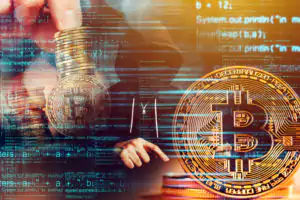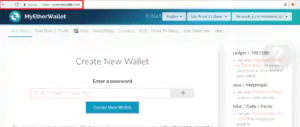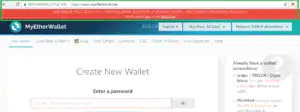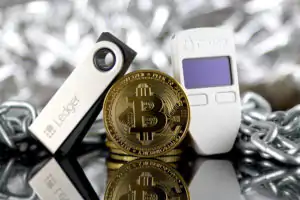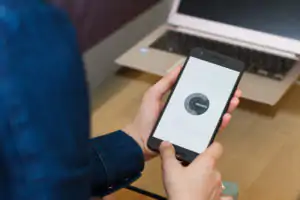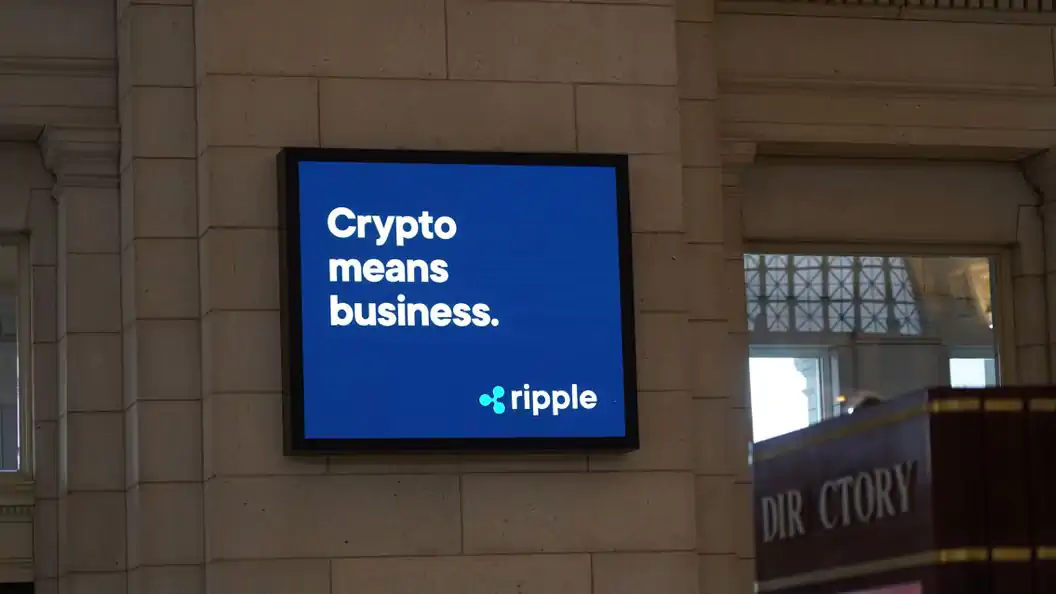Once you’ve bought or received bitcoins; you now need to keep them as safe as possible. This guide will provide you with the essential cryptocurrency security tips!
In This Article:
- Take security measures seriously
- Use complex passwords
- Avoid public WiFi
- Beware of Phishing Scams
- Don’t store your crypto on exchanges
- Keep your devices safe
- Buy a hardware wallet
- Enable two-factor authentication
- Keep your crypto holdings private
- Avoid sending funds to a wrong address
There are many benefits of Bitcoin, one of many is the unprecedented freedom which it provides from banks through its technology. This is a revolutionary idea, no more banks needed. The idea that you are the sole owner of your money thanks to technology, seems basic though never had been invented. This new freedom is refreshing although one service that was provided by banks is now under your responsibility, the security of your assets.
Here you’ll find all the basic security tips you must know. Once these are covered you may want to check our advanced cryptocurrency security tips. Many people don’t take any security measures at all and normally these are the victims of the hackers. You must see this as if you are the sheriff of a town who protects the bank vault from villans. The villans (Hackers) will always attack the easy option, avoid at all costs being the easy option.
So let’s get into it, here are BeInCrypto’s top crypto security tips:
1. Take security measures seriously
Blockchain and cryptocurrency are inherently safe. When you have conversations with other people about cryptocurrencies you’ll easily find the counter-argument that they can hack the blockchain or your cryptocurrency. This is a misconception many people tend to humble upon. This technology is protected by their cryptographic protected algorithm, hence the name cryptocurrencies. The system itself is already a security measure against hackers. To break this you would need an immense computational power. For example, the oldest cryptocurrency Bitcoin hasn’t been hacked since its inception in 2008.
If hackers can’t hack the cryptocurrency itself their obvious target will be the users. They will hunt for lack of security and hack the platform you use to store your digital assets to fill their pockets. Therefore the most important security tip is to take security measures and take them seriously.
2. Use complex passwords
For many readers, this tip may seem obvious. However even nowadays the three most common passwords are 123456, 123456789 and the most comical password.
In your password try to combine upper and lowercase letters, numbers and symbols. The longer the password is the better. You may use online password testers to see how strong your password is. Using a password generator to get random passwords is a good idea.
A popular service are password managers. They generate a unique, long and very complex password for each online account you own. These services are very comfortable, safe and many big profile companies use them. Either way, if you have the time and dedication (Or a big sum of money in cryptocurrencies) the safest solution will always be to note the passwords on paper.
3. Avoid public WiFi
Public WiFi can be a comfortable service however you must avoid interacting with any exchange or wallets while connected. Hackers can collect easily the data transmitted through the network, for instance, your login credentials.
We strongly recommend to never connect to any financial service on these networks. In case of a desperate situation at least use a VPN.
4. Beware of phishing scams
You may know about phishing scams as its the most common method to steal your credentials for traditional online banking. Cryptocurrency exchanges and wallets are also subject to this disguised technique. One of the most basic scam techniques used by hackers to steal your Bitcoin or altcoins.
Phishing scams create a false website which resembles the original site. The user is fooled and doesn’t know they have been redirected to a fake site. The user inserts the username and the password and now the hackers have your credentials. The hackers can send easily the funds to their wallets.
If you regularly access exchanges an easy security measure is to bookmark these websites. Always access using your bookmarks and you will be safe. The phishing sites tend to focus on common typos. A notable example was myetherwallet (A respectful Etheruem wallet platform), which was victim of several phishing scams.
Website created for the phishing scam (myetherwallet.com):
Original site (myetherwallet.com):
At first glance, you won’t notice anything wrong. The styling is a copy of the original site, although the URL is slightly different: myetherwallet.com vs myetherawllet.com. The W and A have been changed of order, a small detail you won’t be able to see easily.
5. Don’t store your cryptocurrency on exchanges
This may be the most common mistake made by crypto holders. The word exchange already provides you with a clue of what is the purpose of these platforms. They are used to exchange, they are not intended for the custody of your cryptocurrencies. The largest amount of stolen Bitcoin has been due to the hacks of exchanges, not of the cryptocurrency itself. Normally hackers attack small exchanges which lack in security although big exchanges have been hit. Here is a list of some of the most notable Bitcoin heists until date:
- Mt. Gox: 850,000 BTC (Worth $450 million at the time in 2011)
- Bitfinex: 120,000 BTC
- Bitcoinica: 43,554 BTC
- Bitfloor: 24,000 BTC
- Bitstamp: 19,000 BTC
- Binance: 7000 BTC
- Poloniex: 97 BTC
We placed BINANCE and Poloniex not because of the amount, just to make you aware that even reputable exchanges can get hacked. Fortunately, exchanges have evolved and also their security measures. The biggest BTC hacks mainly occurred when the cryptocurrency exchanges were still young and their security measures were low. Nevertheless, Binance was hit in 2019. Even though, no exchange is safe of a hack attack.
The only reason to have your digital assets on exchanges would be if you are a daily trader. If you are a holder or a long-term trader the best practice would be to store your Bitcoin and/or altcoins on a cryptocurrency wallet. If you wished to exchange for another cryptocurrency or FIAT send it to your wallet once you’ve completed the trade. Remember, whoever has the private key controls the money.
6. Keep your devices safe
Use your common sense and concentrate on basic safe user practices such as: don’t download any suspicious file, keep your firewall updated and enabled and don’t visit known hazardous websites. If you wish to install a software always check before opinions of other users or if the company behind it is transparent enough to trust.
7. Buy a cryptocurrency hardware wallet
This security measure depends greatly on the amount of money you have in Bitcoin. As a rule of thumb, we recommend that if you have more than $500 worth in Bitcoin its recommendable to buy a cryptocurrency hardware wallet. There are many hardware wallets in the market.
Cryptocurrency hardware wallets are by far the safest approach to store your digital assets. A cryptocurrency hardware wallet is a specialized device which has been solely designed for security. The device stores your private keys inside an impenetrable circuit and allows them to sign transactions with a single click. As many other wallets, it offers a seed to transfer easily your private keys in case your device is stolen or lost.
If you have a small amount of Bitcoin or you want a faster and seamless wallet you may use hot wallets. There are differences between cryptocurrency hot and hardware wallets. If your device is a safe environment hot wallets is safer than leaving your cryptocurrencies in an exchange.
8. Enable two-factor authentication
Two-factor authentication is an extra layer of security of validation. It adds an extra step on the login process, an extra layer of security. You need to insert an extra password to access. This password is generated by an app (Google authenticator or Authy) stored in your smartphone. Every couple of seconds a new password is generated for more security. The purpose is to create an extra external security layer to make it more difficult for the hacker. The hacker would have to steal your phone and have access to it.
Most exchanges offer 2-factor authentication and are very easy to install. Two-factor authentification can and should be used on the email you use to login into the exchange accounts.
Additional options as a random PIN sent to your email and SMS are also offered by some exchanges. Either way, we strongly recommend not using SMS verification.
9. Keep your cryptocurrency holdings private
You may be proud of an investment you’ve made in a cryptocurrency. Many investors brag of their holdings and successes, many did in the great surge of 2017. Nowadays people have learnt that this may not be a good idea. The most extreme example is the Bitcoin holder who was murdered after being forced to send his Bitcoin.
Cryptocurrencies don’t have an identity attached to the money as traditional banking does. If you have the private keys of Bitcoin you are the owner. Therefore if you are obliged to send your Bitcoin to an address you won’t be able to reclaim them. For criminals, this can be attractive.
A simple solution is not to boast about your holdings to people or at least keep a low profile about it. In conferences, meetups or out of curiosity of your friends you may get the question of how much cryptocurrency you hold. Avoid answering this question for your security, especially if you hold a substantial amount.
10. Avoid sending funds to a wrong address
Cryptocurrency addresses are very long and complex.
bc1qpp83ssd5a3p9vhwktp777n968fdj9fjttswc7a
If you send the assets to a wrong address by mistake you will lose your funds. As addresses are not attached to identity you won’t be able to contact the person holding the address. Additionally, if you would find the holder you can’t oblige them to return the funds. With Bitcoin and altcoins, there is no middleman which for many reasons has clear advantages but for these kinds of issues, you are alone.
As the addresses are very long it’s not recommendable to type these addresses manually. Many exchanges and wallets offer a copy to clipboard button. Selecting the address manually can also create mistakes. Either way, if you copy and paste the address you must always check if they are the same. Unfortunately, there have been cases where the copy and paste functionality had been hacked. A common practice is to check the first and last 5 digits of the address.
Transfers in cryptocurrency have very low fees. Therefore it’s very recommendable to send a small amount and check if it worked and then send the whole amount. It doesn’t cost almost any money so there is no excuse.



 BlocksInform
BlocksInform


